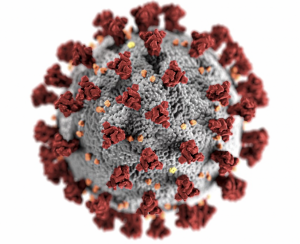9.4 Impact of COVID-19 on People Experiencing SUDs
“Addiction is a disease of isolation, so it stands to reason that social distancing…is counter to most efforts to engage in a recovery community” (Grinspoon, 2020, para.5).

Prior to the start of the pandemic, public health officials, front line service providers, grassroots organizing and advocacy groups, including PWLLE, were raising the alarm about a worsening opioid poisoning (overdose) crisis. The pandemic exacerbated this crisis. People experiencing SUDs are more vulnerable to both contracting COVID-19 and experiencing more severe illness (See Chapter on SDoH) (Grinspoon, 2020; Smith, 2021). In addition, the recommended COVID-related public health measures have exacerbated the crisis by: increasing isolation and psychological trauma; worsening mental health issues; reducing access to social supports and SUD treatment services; and impacting the ability of PWUS to follow harm reduction guidelines (Grinspoon, 2020; Jemberie et al., 2020; Smith, 2021).
COVID-19/pandemic related risks expanded on & exacerbated drug poisoning (overdose) risk factors that existed prior to the pandemic including:
- Isolation.
- Stigma & discrimination.
- Lack of access to a safe supply of drugs.
- Lack of access to a safe supply of equipment (e.g., clean needles).
- Lack of access to safe consumption sites and other social services.
- Lack of access to Naloxone.
(Jemberie et al., 2020; Grinspoon, 2020; Smith, 2021).

Click the links to learn more about the impact that the Covid-19 Pandemic has had on PWUS:
A Tale of Two Epidemics – When COVID-19 & Opioid Addiction Collide
Canada’s Hidden Crisis: How COVID-19 Overshadowed the Worst Year on Record for Overdose Deaths

